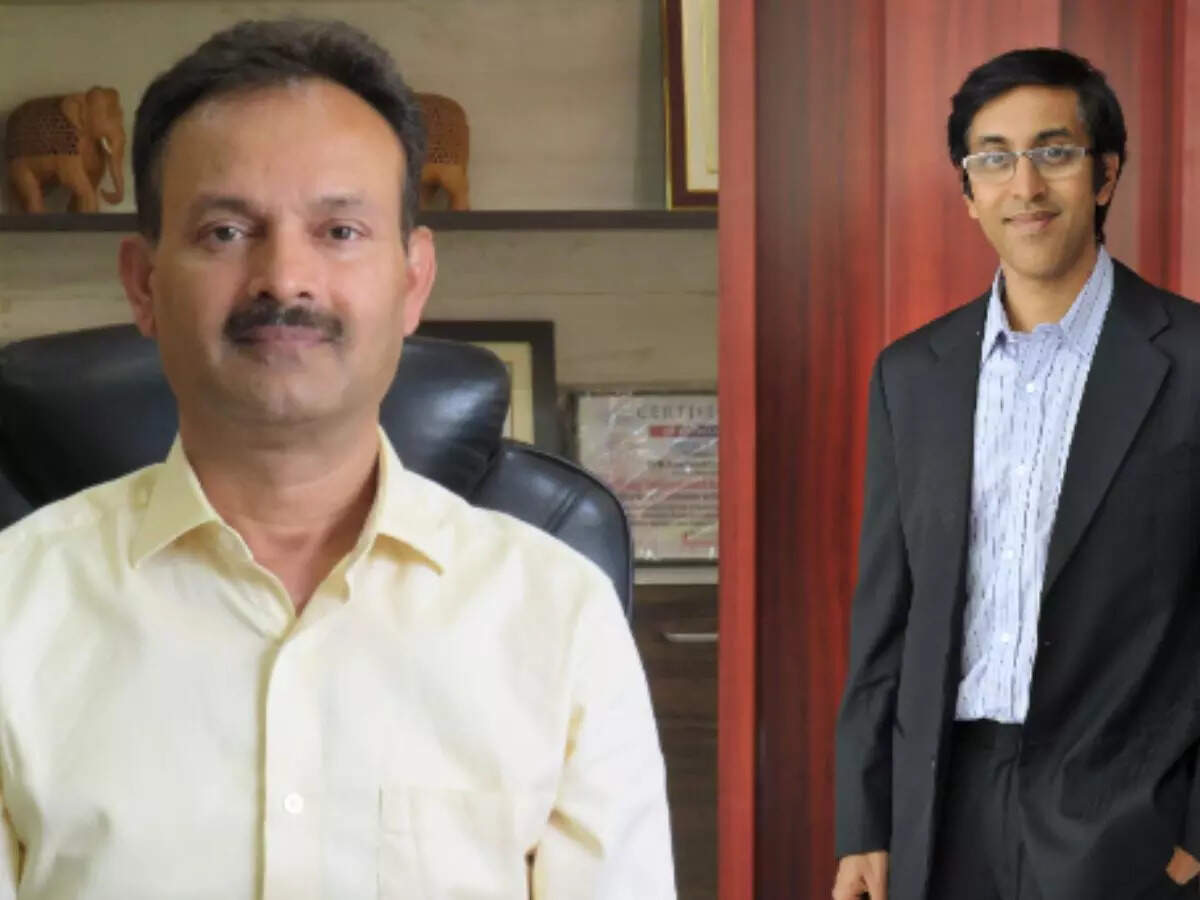Phase 3 clinical trial data demonstrated Lirafit’s efficacy in improving glycemic control in adult type 2 diabetes mellitus patients, as well as its impact on atherosclerotic cardiovascular diseases (ASCVD) and obesity.

Glenmark Pharmaceuticals recently launched a biosimilar of the popular antidiabetic drug, Liraglutide in India. Marketed under the brand name Lirafit, the drug is priced at around Rs 100 for a standard dose of 1.2mg (per day).
In the development and commercialization process for Lirafit, a active project management team was put in place from the beginning, and the review and advice from the scientific committees of NBM BIRAC and techno-commercial team at Glenmark was also instrumental in commercializing Lirafit.
The collaboration between Levim and Glenmark has helped to bring complementary strengths to expedite the development process.
To understand more about the critical aspects, ETHealthworld’s Rashmi Mabiyan Kaur interacts with Dr. Jitendra Kumar, Managing Director, BIRAC and Jatin Vimal, Co-Founder and Partner, Levim Biotech LLP on the development of crucial Liraglutide biosimilar named Lirafit and how it is expected to transform the diabetes care in India. Edited excerpts:
What impact will Lirafit have on the diabetes drug market?
Dr. Jitendra Kumar: The major impact that Lirafit would have in the Indian market is to effectively alleviate the diabetes burden in India in terms of both cost and quality of life. There’s a major supply shortage for this class of drugs worldwide due to its substantial benefits but at the same time, access in developing countries is restricted due to patent barriers and high treatment cost. The development of Lirafit has helped to break these barriers which offers an important option of care for diabetes management in India. The drug’s renal and cardio-protective properties will greatly reduce the complications arising out of diabetes and reduce the high economic cost of this disease at the individual level and for the nation.
What synergies or strengths did Levim Biotech bring to the table, enhancing the development and commercialization process for Lirafit?
Jatin Vimal: Levim’s core strength was in the process design for the liraglutide biosimilar, for which it has also secured patents. Another major enabler was the effective coordination with multiple partners, whether it was for sourcing key materials, conducting clinical trials, co-development of the pen device or seeking partnerships. A very active project management team was put in place from the beginning, and the review and advice from the scientific committees of NBM BIRAC and techno-commercial team at Glenmark was also instrumental in commercializing Lirafit.
What challenges did you face in the product development and clinical testing of Lirafit?
Dr. Jitendra Kumar: Lirafit’s product development and clinical testing occurring during the SARS-COVID-19 phase had posed major challenges with conduct of the study with implications on an increase in budget and project timelines. For instance, the bio-equivalency testing had to be done by housing the healthy volunteers in a bio-bubble as access to RT-PCR testing was difficult with the increasing cases of Covid-19. However since Lirafit was an important program for the development of biosimilars in the GLP-1 class of treatment, it was constantly backed-up by the Birac NBM grant.
How do collaborations like the one between Levim Biotech and Glenmark contribute to this trajectory?
Jatin Vimal: Development of biopharmaceuticals involves a lot more areas of expertise compared to generic pharmaceuticals and hence collaborations similar to Levim and Glenmark help to bring complementary strengths to expedite the development process and at the same time ensure that it’s done holistically. Early-stage development requires agility and scientific depth while commercialization requires a breadth of experience, and this collaboration is a good example of that. Such partnerships contribute towards making India, the development and manufacturing hub for complex therapeutics which eventually helps in the affordable management of disease burden globally.
BIRAC has played a crucial role in supporting innovative healthcare solutions like Lirafit. Could you elaborate on BIRAC’s role in fostering this innovation within the biotech sector in India?
Dr. Jitendra Kumar: BIRAC has developed and optimised India-centric models and framework for operations that are not direct mimics of what has succeeded for the advanced ecosystems in developed countries. The biotech innovation ecosystem is largely driven by startups. BIRAC has played a key role through its various schemes aimed in strengthening the biotherapeutic ecosystem and promoting innovative research.
In the therapeutics segment, there are several products which have reached the market with BIRAC support. These include, Rasburicase to control Hyperuricemia under trade name TULY, a recombinant Uricase by Virchow Biotech Pvt Ltd. First recombinant Follicle Stimulating Hormone (FSH) developed, manufactured, and sold by Bharat Serum and Vaccines Limited, India’s first urology cell therapy product (UREGROW®), an FDA-approved therapy for the treatment of urethral stricture, developed by Regrow Biosciences Pvt. Ltd.
The COVID-19 pandemic brought in several challenges. India’s biotech innovation ecosystem was able to leverage its strengths to convert this into opportunities. BIRAC responded to this challenge by offering funding and other support under various initiatives like COVID Research Consortium, Mission COVID Suraksha, Fast track funding scheme as well as from its existing mission programs like NBM, IndCEPI, etc., along with providing mentoring through experts and regulatory facilitation through frequent FIRST Hub Meetings, etc. The support was also extended for the development of vaccines, therapeutics, diagnostic kits, remote monitoring devices, masks, coveralls, sanitizers, health and vital monitoring devices which were the need of the hour. In addition, several parallel efforts were undertaken under Mission COVID Suraksha to make India self-reliant. India’s success in the COVID vaccine segment has been globally recognized and made India proud and we take great pride in being able to contribute significantly to this effort.
All these have been achieved through various programmes of BIRAC such as Bioincubation for creating Infrastructure and other support systems for the startups, funding through Biotech Ignition Grant and other follow-up funding, mentorship, branding and networking for the startups.
Considering the success of Lirafit and similar ventures, what do you envision for the future of biopharmaceuticals in India?
Jatin Vimal: Currently the medical use of biopharmaceuticals in India is less than five per cent and does very little justice to its therapeutic potential in treating diseases. This is due to the high-cost barriers, which is in turn due to the product complexity & long regulatory pathway. Incentives like the NBM and BIRAC grant have helped propel the development and manufacturing in India and this together with improved regulatory processes which has resulted in biopharmaceuticals like Lirafit becoming highly affordable compared to any other country in the world. Such successes translate to better quality of life for more patients in India with chronic diseases, which further impact their families, communities and ultimately the economic development of India.
What are the current trends in biotech research in India, especially in the realm of pharmaceuticals? And what opportunities for growth do you foresee in the near future, both for Indian biotech companies and for collaborations with international partners?
BIRAC’s endeavor would be to consolidate what it has created so far and pick on those critical components which need to be built upon. To catapult India to become a Biomanufacturing Hub, sustaining innovation and facilitating the Startup Biotech Ecosystem towards commercialization of products and technologies would be high on priority. The rise of biotech startups is pivotal for our future economy. In 2014, our bioeconomy stood at $10 billion; today, it has grown to $137 billion, and is expected to achieve $300 billion by 2030. The current research trends in India are picking up on CART therapies, gene editing, AMR, use of AI’s in Biotechnology.
Indian biotech companies have huge opportunities for growth. This will be fuelled by the funding and Infrastructure being created by BIRAC. BIRAC is open to international collaborations and it has already forged links with many multinational companies such as Miltenyi, Takeda etc. The international partnership is envisaged to help startups explore global markets as well as open up possibilities of exits and access to risk capital.
-->






















